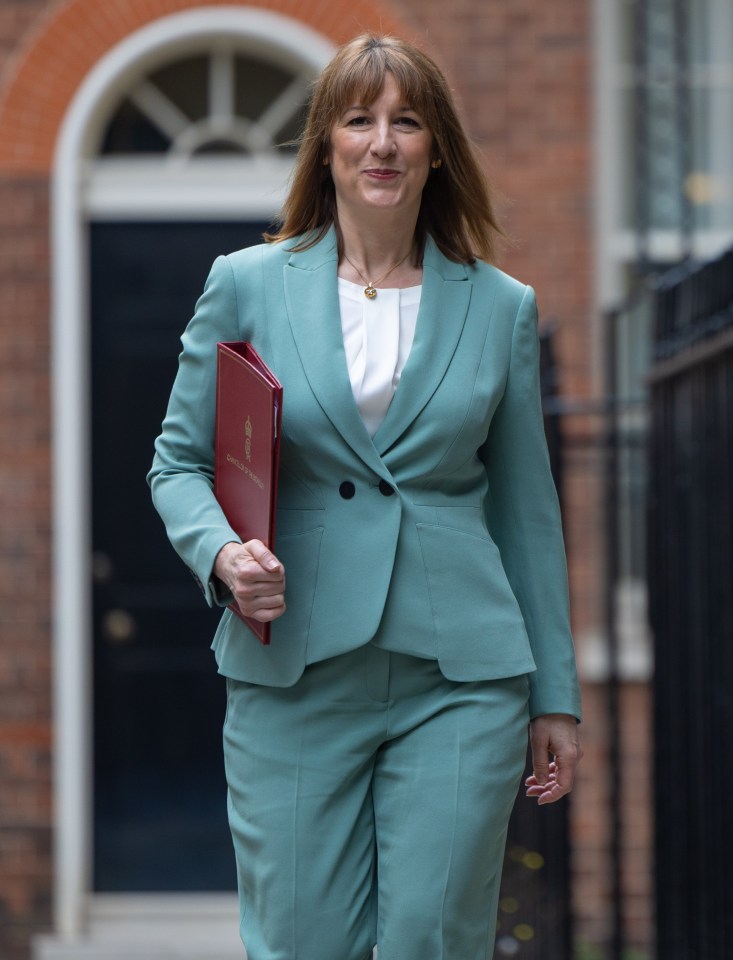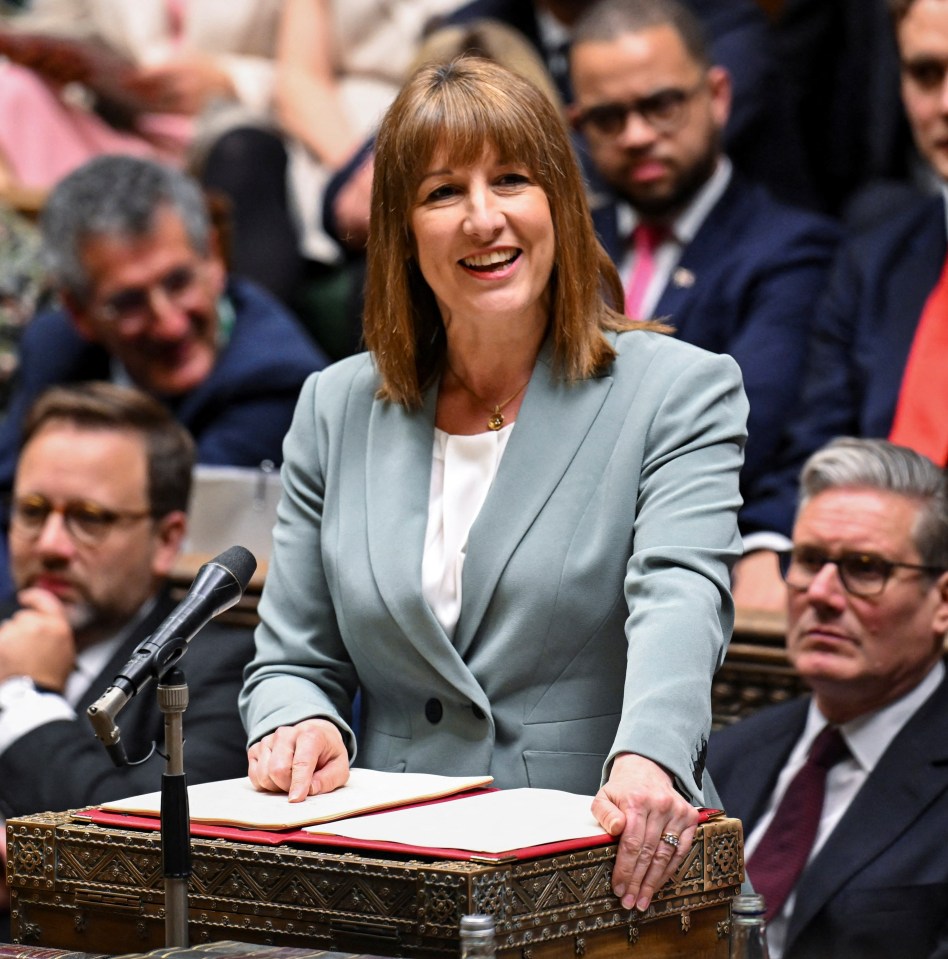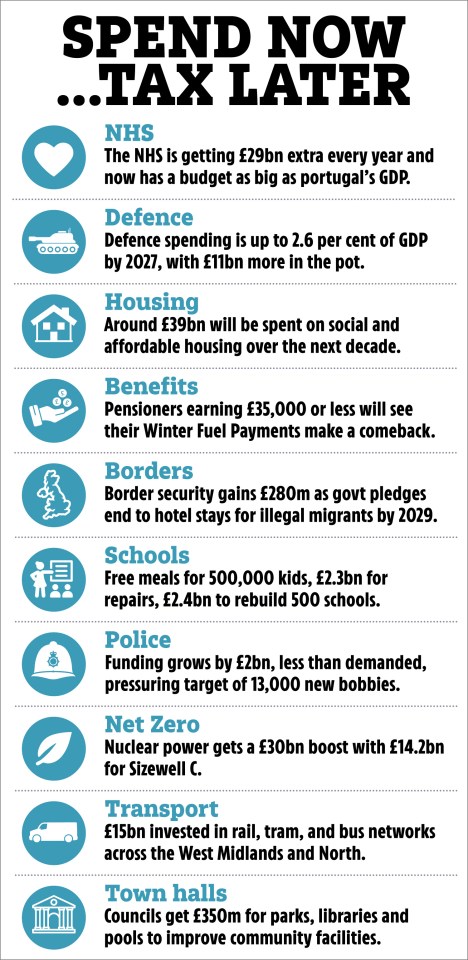RACHEL Reeves was yesterday branded a “spend now, tax later” Chancellor after unleashing an eye-watering borrowing spree in a do-or-die bid to drive growth.
Ms Reeves put £113billion on the country’s credit card to fund “national renewal” projects — with defence and the NHS taking the lion’s share of the budget uplifts.
She was accused of digging the “black hole” in public finances Labour claimed to have inherited into a “crater into which public confidence is plunging”.
Experts said her next Budget may have to raise up to £23billion to keep to her fiscal rules amid economic slowdown and uncertainty over US tariffs.
It sparked fears of tax rises in autumn to stop UK debt worsening and spooking money markets.
Ms Reeves came out fighting after a humiliating 48 hours in which she U-turned on winter fuel cash for millions of OAPs.
READ MORE ON SPENDING REVIEW
She unveiled spending plans for the next three years, calling them “Labour choices” in the hope of shoring up support in the party’s heartlands amid the threat of Nigel Farage’s Reform UK.
Shadow Chancellor Mel Stride said she had a “Corbynist catalogue” of tax rises to flick through to fund her pledges — a reference to a secret memo Deputy PM Angela Rayner sent her suggesting ways to raise cash.
He called her a “tinfoil Chancellor, flimsy and ready to fold in the face of the slightest pressure” as she set out her plans.
He said: “This is the spend now, tax later review, because the Chancellor knows she will need to come back here in the autumn with yet more taxes and a cruel summer of speculation awaits.
“How can we possibly take this Chancellor seriously after the chaos of the last 12 months?”
Mr Reeves insisted later that no tax rises would be needed to pay for her commitments.
She said: “Every penny is funded through the tax increases and changes to the fiscal rules that we set out last autumn.”
The review was the first since 2007 to go through spending “line by line”, it was claimed.
The health department is expected to make £9billion in efficiency savings by 2028-29, and the defence budget £905million.
The Chancellor told MPs: “I’ve made my choices. In place of chaos, I choose stability.
“In place of decline, I choose investment. In place of pessimism, division and defeatism, I choose national renewal.
“Reforms that will make public services more efficient, more productive and more focused on the user. I have been relentless in driving out inefficiencies.
“I will be ruthless in calling out waste with every penny being reinvested into public services.”
She will hope the cash injections will ease relationships with Labour backbenchers concerned at welfare cuts. A vote on measures is planned for next month.
The biggest winner in the review was the NHS, which gets a three per cent budget rise in England over the next three years, taking its funding to £226billion.
Financial cushion
The defence budget will go up by 2.6 per cent but pressure is mounting on ministers to raise it again to 3.5 per cent by 2035.
The vow to build 1.5 million homes in the next five years was boosted with confirmation an average of £3.9billion will be go on social and affordable housing in the next decade.
Ed Miliband’s energy department gets a 16 per cent real-terms rise with £14.2billion extra going on the Sizewell C nuclear plant.
Families and OAPs could save £600 a year on bills in more energy-efficient homes, she said.
A pledge to end the use of asylum hotels by 2029 will save £1billion a year, she insisted.
The police will get an above-inflation increase but top cops have warned of “incredibly challenging” budgets following tense talks between the Chancellor and Home Secretary Yvette Cooper.
Surrey Chief Constable Gavin Stephens said the money will “fall far short” of that needed to fund Government ambitions and maintain the existing workforce.
He said the increase “will cover little more than annual inflationary pay increases”.
The Chancellor inherited, supposedly, a black hole and she has dug a crater into which public confidence is plunging.
Richard Tice
Ms Reeves aims to meet her fiscal rule of balancing day-to-day spending with revenues by 2029-30 and plans to reduce the UK’s debt. Her financial cushion is just less than £10billion.
Reform deputy leader Richard Tice said public spending was “completely out of control”.
He said: “The Chancellor inherited, supposedly, a black hole and she has dug a crater into which public confidence is plunging.”
Economist Ruth Gregory, of Capital Economics, said Ms Reeves may need to find an extra £13billion to £23billion in autumn’s Budget “simply to maintain her current buffer against the fiscal rules”.
Stephen Millard, interim director of the National Institute of Economic and Social Research, said it is now “almost inevitable” that if she sticks to her rules, she will have to raise taxes this year.
Rain Newton-Smith, director general of the Confederation of British Industry, warned that the Government cannot target business again following its £25billion raid at the last Budget.
She said: “We will hold the Chancellor to account that she won’t come back for tax rises on business . . . because I don’t think business can shoulder any more.
“The Prime Minister himself has said you cannot tax your way to growth.
“So I think it’s critical that we don’t see rises like that on business because they are the ones that need to invest to deliver the growth mission.”
BIG VICTORY FOR FORCES
By John Healey, Defence Secretary
THE spending review was a big win for our Armed Forces, our national security and for working people across Britain.
In a fast-changing world, we’re serious about backing the outstanding men and women who serve our country and the engines of industry standing behind them.
That’s why the Chancellor confirmed an extra £11billion for defence, paid for by shifting spend from overseas development.
We’ll invest more than £6billion to boost nuclear submarine production in Barrow and Derby. And we’ll invest more across the UK — from Sheffield to the Clyde — to meet our pledge to build up to 12 new attack submarines.
By boosting our nuclear defences, we will support 30,000 British jobs and create tens of thousands of apprenticeships over the next decade.
For the first time in a generation, we are building out — not hollowing out — our Armed Forces.
This is investment in Britain’s renewal. This is a government that is making Britain safer and backing British jobs as the foundation of our Plan for Change.















